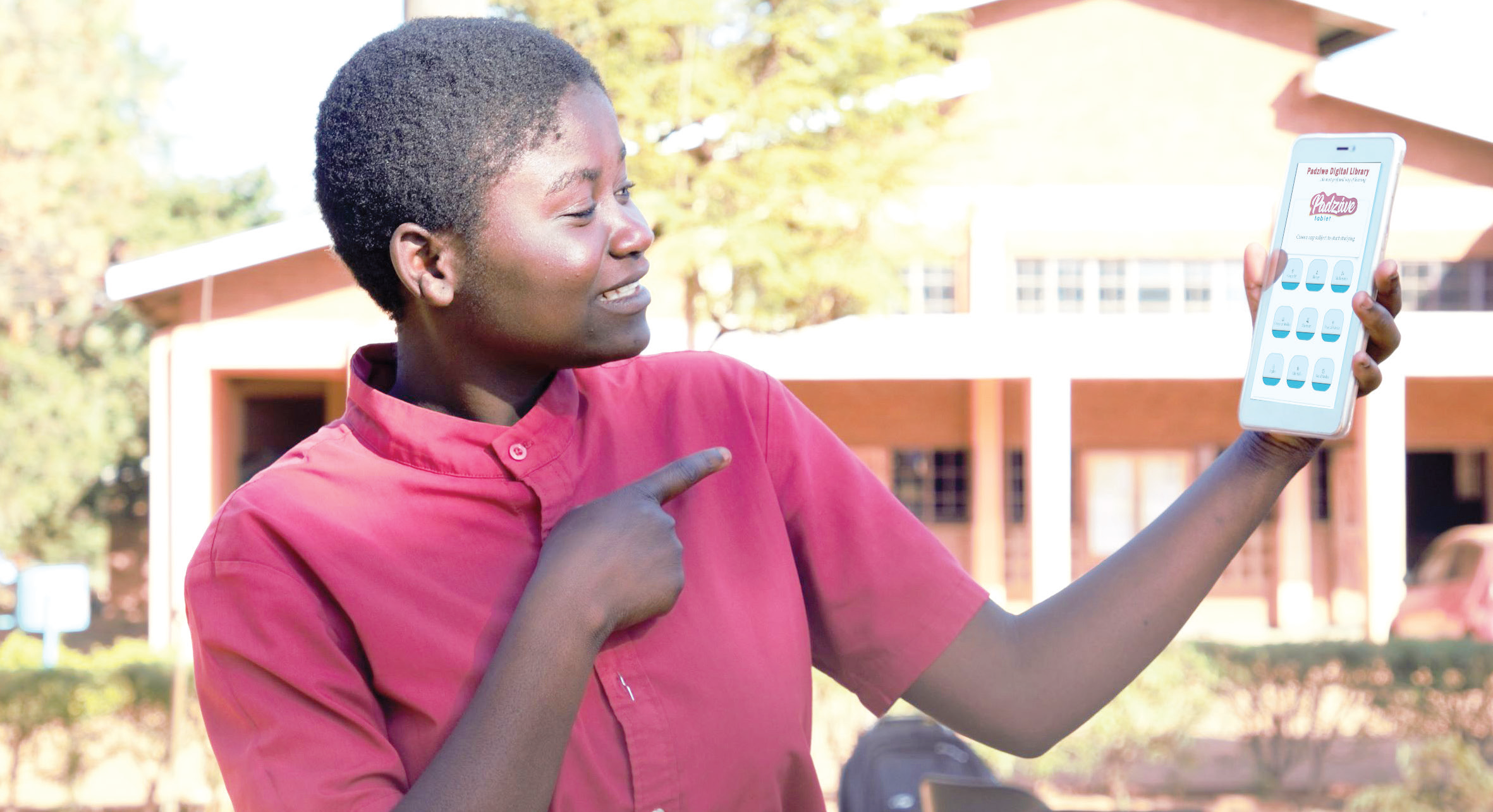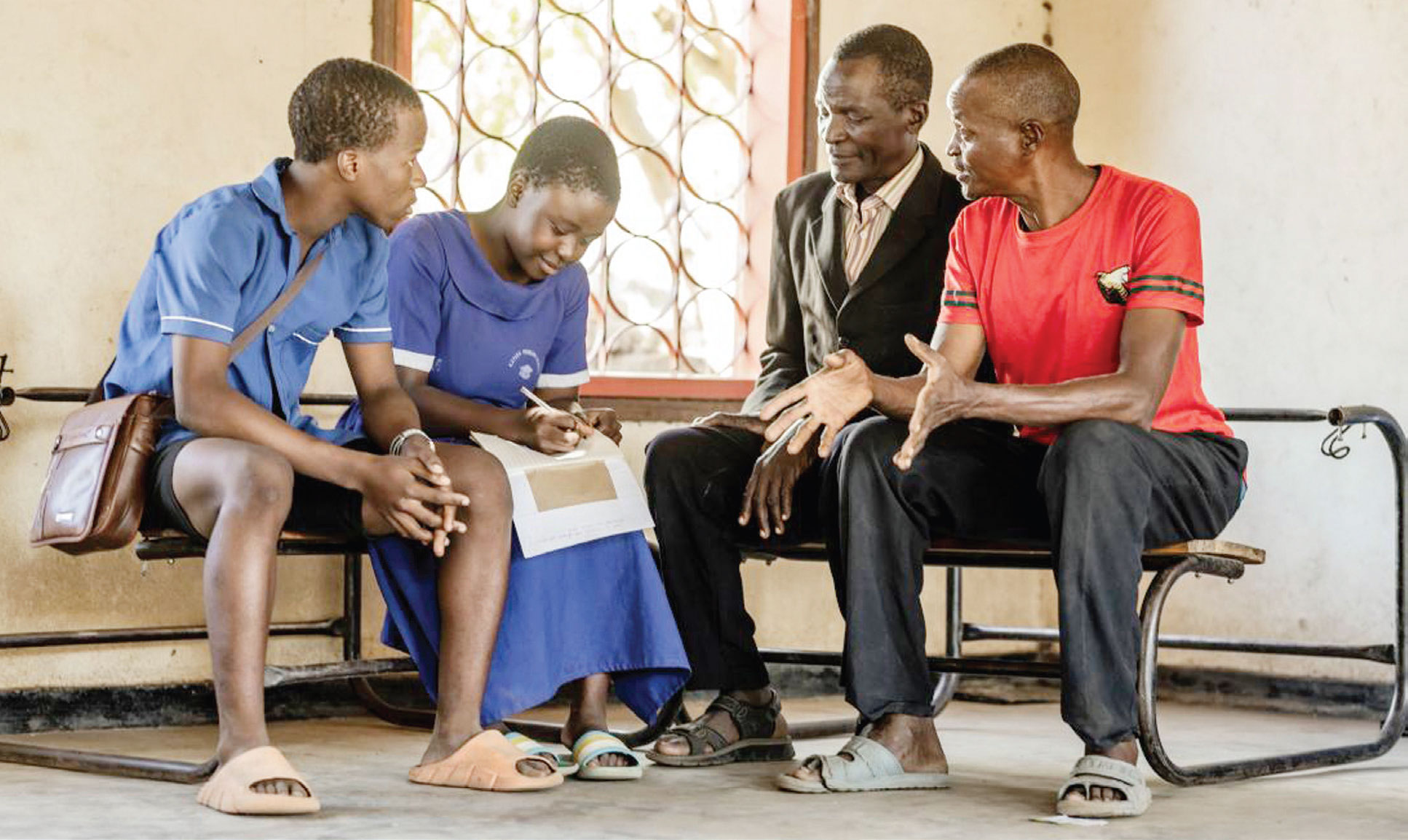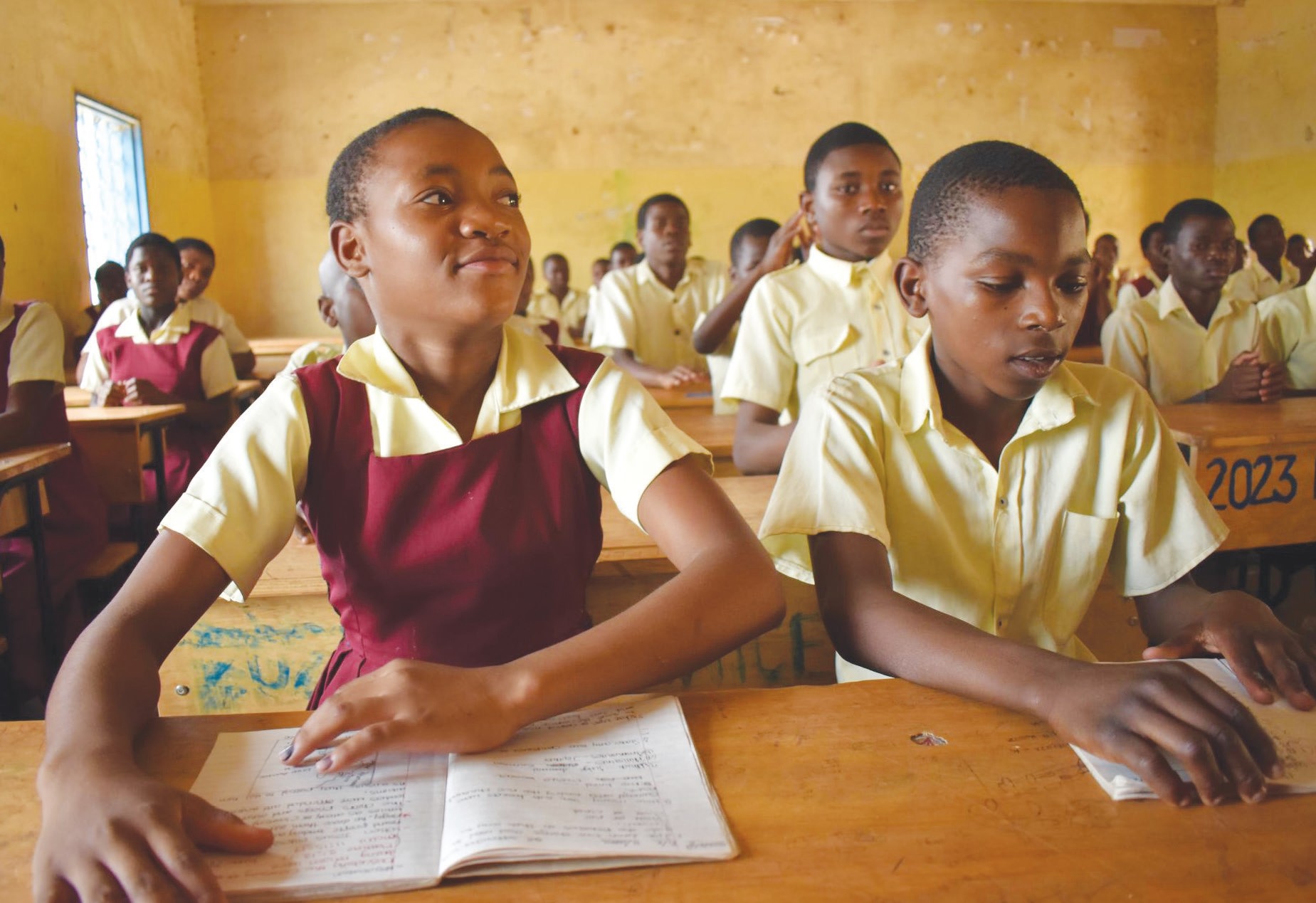A library at fingertips
When Natasha Tonthola saw her 15-year-old daughter, Comfort-Eugenia, was a slow learner, she decided to do something about it.
“My daughter has sickle-cell disease. Unlike most of her peers, she frequently missed classes because of the illness. At times, her teachers at Kings Foundation Secondary School came home to teach her so that she could catch up with her classmates,” she says.

The concerned mother bought her a tablet containing Padziwe Digital Library, a computer and phone-based educational software that conforms to the Malawi School Certificate of Education (MSCE) and the University of Cambridge International General Certificate of Secondary Education (IGCSE) curricula.
From the tablet, Comfort-Eugenia accessed interactive lessons rich in visuals that simplified concepts easily without requiring her to attend classes.
“After three months, my daughter’s performance changed considerably. She sat her MSCE exams last year and got 20 points. This was a big achievement for a child who missed several classes,” says Tonthola.
The former Big Brother Africa Malawi representative’s daughter has secured a scholarship to study medicine at the University of Birmingham in the UK starting July.
“The funders were impressed that someone with sickle-cell could do well in her studies despite all the pain she goes through,” says the happy mother.
Tonthola also runs Project Dignity, which provides menstrual hygiene and sanitary towels to girls in rural communities.
She has bought two more tablets with the software for needy girls in community day secondary schools without libraries.
Tonthola is a foster parent to one of the two teens; one is in Form Two and the other in Form Three.
“They were always behind in their studies and their grades were not impressive. I bought two more tablets at a subsidised price. With the closure of schools due to the Covid-19, the two are always busy with schoolwork on their tablets,” she says.
Precious Bulambo, a third-year bachelor of science in agriculture and applied economics student at the Lilongwe University of Agriculture and Natural Resources (Luanar), shares the wonders of Padziwe Digital Library.
The student, who scored 10 points in MSCE examinations at Marist Secondary School in Dedza, attributes his success to the educational software.
“Using the Padziwe, I had everything I needed at my fingertips. Before, I used to attend part-time classes and do a lot of studying.
“But the software has videos, animations, past examination papers and study tools which helped me grasp school concepts easily. I stopped troubling my parents to pay for part-time lessons,” he explains.
The digital library installed on computers, smart phones and tablets can be used both online and offline.
The software was developed by youthful Malawians calling themselves Padziwe—a wellspring of innovation.
According to Padziwe co-founder Pilirani Kumasewera, about 2 500 people have used the educational applications at MSCE and the Cambridge examinations.
“Padziwe Digital Library has demonstrated huge potential to help students learn effectively. It promises to be a game-changer in secondary education and there have been positive results and testimonies,” he says.
With the shutdown of schools in light of the global Covid-19 pandemic, Tonthola says it is high time the educational software, mostly used in private schools—including Lilongwe Academy, Mount Sinai International and Good Shepherd International—rolled out to public schools.
“If government had negotiated with the youth team and bought the tablets for secondary school learners at a subsidised price, learning would not have stopped as is the case now,” she explains.
Tonthola urges government to support and promote innovations by young Malawians immersed in science, education and technology instead of relying on imports.
To beat the impacts of Covid-19 on education, Padziwe is developing applications for primary schools to ensure that learners are not left behind as seniors continue to learn at home.
Kumasewera says: “We have started with applications for upper primary classes—Standard Six, Seven and Eight. We are currently finalising a Standard Five application.”
They have also developed an assessment system that enables schools and teachers to track learners’ performance.
“We are talking with various potential partners so that the team can open its online platforms for all learners free of charge,” he says.
However, education activist Benedicto Kondowe is worried that government is slow to absorb the educational software to turn around one of the sectors worst hit by Covid-19.
With the rise of home schooling, he says Padziwe Digital Library can be put into compact discs to be distributed to learners with no access to computers.
Kondowe, who is executive director of Civil Society Education Coalition, says: “I have gone through the educational software and it needs to be promoted.
“It offers a very important platform for learning because it brings content for different subjects under one roofless innovation.”





